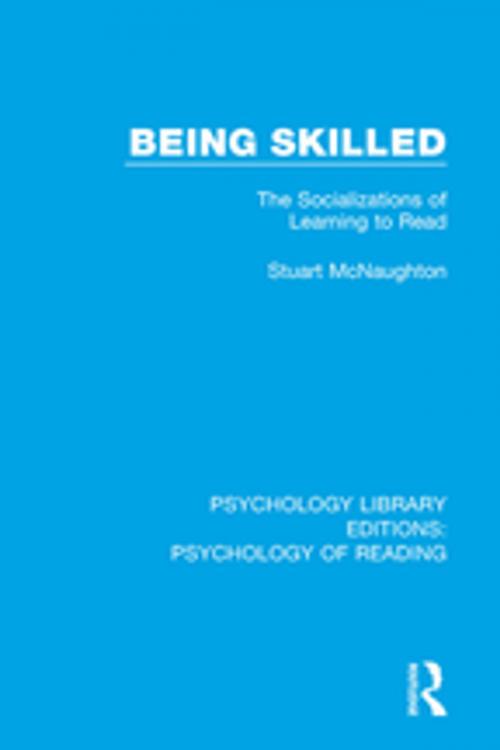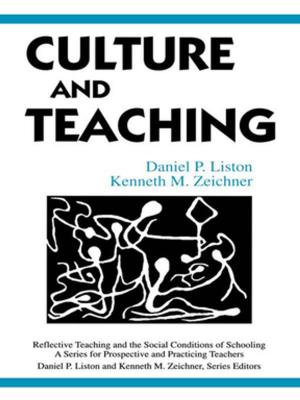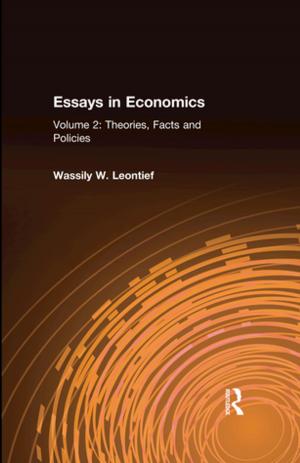Being Skilled
The Socializations of Learning to Read
Nonfiction, Health & Well Being, Psychology, Cognitive Psychology| Author: | Stuart McNaughton | ISBN: | 9781351610216 |
| Publisher: | Taylor and Francis | Publication: | November 3, 2017 |
| Imprint: | Routledge | Language: | English |
| Author: | Stuart McNaughton |
| ISBN: | 9781351610216 |
| Publisher: | Taylor and Francis |
| Publication: | November 3, 2017 |
| Imprint: | Routledge |
| Language: | English |
Originally published in 1987, Being Skilled presents a new model of how children learn to read, and in particular those who learn quickly and precociously. Bringing together ideas from such diverse sources as cognitive and developmental psychology and behaviour analysis perspectives on learning, Stuart McNaughton has produced a more complete theory based on a study of homes and classrooms, and the characteristics of reading behaviour in these settings. Within this theory reading is seen as a symbolic skill with structural properties that partly determine development; but it is also a social practice, in which learning is achieved through problem-solving and the performing of tasks set by particular environments.
Drawing on extensive research carried out in Britain, North America and Australasia, McNaughton examines how interactions between teacher and child direct the task of learning to read, and how the relationship between home and school can be a well-matched or a poorly-matched setting in which learning may occur. Being Skilled will appeal to advanced students, researchers and theorists in education and development psychology and to anyone interested in the learning of complex skills.
Originally published in 1987, Being Skilled presents a new model of how children learn to read, and in particular those who learn quickly and precociously. Bringing together ideas from such diverse sources as cognitive and developmental psychology and behaviour analysis perspectives on learning, Stuart McNaughton has produced a more complete theory based on a study of homes and classrooms, and the characteristics of reading behaviour in these settings. Within this theory reading is seen as a symbolic skill with structural properties that partly determine development; but it is also a social practice, in which learning is achieved through problem-solving and the performing of tasks set by particular environments.
Drawing on extensive research carried out in Britain, North America and Australasia, McNaughton examines how interactions between teacher and child direct the task of learning to read, and how the relationship between home and school can be a well-matched or a poorly-matched setting in which learning may occur. Being Skilled will appeal to advanced students, researchers and theorists in education and development psychology and to anyone interested in the learning of complex skills.















